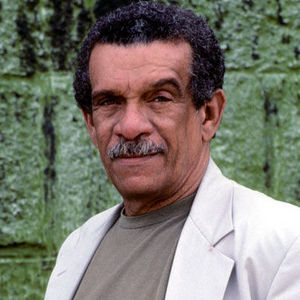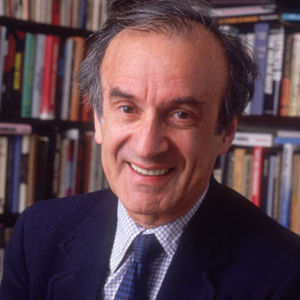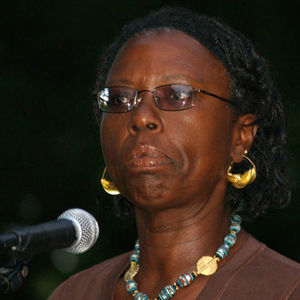This week's session
Summer 2017
One Month Novel Tune-Up
Thanks for sharing your novels! -- MSW
Updated 6-27-17
Here's the quotation from David's other instructor (Bret Gladstone)
about critiquing:"Be ruthlessly honest and ruthlessly kind. "Current Week
Writers We Lost Recently:
Derek Walcott Elie Weisel Gloria Naylor
Pat Conroy Harper LeeOne-Month Novel Tune-Up
WRIT1-CE 9045 - 001New York University Summer 2017
School of Continuing and Professional Studies
7 East 12th Street, Room 124
Mondays: 6:30 PM - 9:30 PM June 5, 2017 - June 26, 2017
Instructor: Meredith Sue Willis
E-mail: MeredithSueWillis@gmail.com
Instructor's home page: Meredith Sue Willis
Academic Integrity Policy
List of Presenters and dates
List of Conference dates
Bibliography of Books about writing
Notes on Point of View
Proof reader's marks
Some quotations about writing
Marketing Information
Books People in Novel Tune-Up Think Are Useful
For Learning How to Write NovelsGame of Thrones by George R.R. Martin Especially for multiple third person limited p.o.v.
Eye of the Needle by Ken Follett
The Portrait of a Lady by Henry James
Running with Scissors by Augustine Burroughs Dark humor about a disturbed family (memoir)
Harmless Like You by Rowan Hisayo Buchanan
The Unbearable Lightness of Being by Milan Kundera Social/politicial/multiple p.o.v.
Catcher in the Rye by J.D. Salinger Authentic Voice
The Good Parents by Joan London Literary and suspenseful
Elena Ferrante Naples Quintet How to narrate as a way to keep story moving forward
One-Month Novel Tune-Up
Syllabus--Schedule of Classes
Please check here for changes and additions to this syllabus.
The text for this course is the writing students produce and present to one another plus occasional hand-outs and online readings. The instructor's book Ten Strategies to Write Your Novel is optional.
The week before you are scheduled to present, please provide copies of a passage from your novel for each member of the class and the teacher. One presentation piece should be 5 - 10 pages long; one should be 15 - 20 pages long. A page is considered to be 250-300 words, one inch margins, double-spaced, one side only, using a font comparable to Times New Roman 12 point. Please use conventional paragraphing, fonts, and layout unless you have some good artistic reason to do otherwise. Also be prepared to discuss the work of classmates when they present.
Also read in advance and be prepared to discuss your classmates' work.
You will be presenting about 25 pages to the class; you may also, by arrangement, present another 25 pages to the instructor only for her responses and suggestions. Keep count of pages you are submitting: up to 50 pages total for the four weeks.
All writing and presentations should be from the novel you’re working on.
Click here for NYU Academic Integrity Policies.
1. June 5. Bring ten copies of (a) a half page overview (introduction, summary, anything that would help us read your
selections) and (b) ten copies of 5 pages from your novel.
Readings: Point of view; Point of view samples; Notes on Scene; Pros and Cons of the Present Tense; notes on omniscience. Optional: In Ten Strategies, "Strategy 4: Find Where You Stand as You Tell Your Story."
DISCUSSION: Structure of the course and structure of the novel. Common vocabulary for talking about novels: show & tell, when to dramatize, process and product, scene and summary; heinleining and infodump; discourse, pacing, etc. Why is point of view so important in fiction? How do we judge fiction? What do we read? What kind of feedback do you find most useful?
SCHEDULE PRESENTATION DATES.
2. June 12 Class starts at 6:30 p.m.!
OPTIONAL HOMEWORK ASSIGNMENT (Only if you want it--most people prefer to bring extra pages of their own choice): A dialogue scene from your novel.
DISCUSSION: How we keep ourselves writing. Read Point of view , Point of view samples , Notes on Scene , and Pros and Cons of the Present Tense. Optional: In Ten Strategies, "Strategy 5: Master Dialogue and Scene"– read parts on dialogue.
INDIVIDUAL PRESENTATIONS. (See schedule below).
.
3. June 19 OPTIONAL HOMEWORK ASSIGNMENT (Only if you want it--most people prefer to bring extra pages of their own choice): Bring in a complete scene.
DISCUSSION: Scene, logistics, pacing. The art of moving your characters in space and moving your story through the book. Ellipsis, summary, scene, stretch, pause. More dialogue and scene.
Read: Material on dialogue at: Dialogue Tags ; Types of Discourse ; and article by MSW about dialogue online at http://www.nycbigcitylit.com/contents/ArticleWillisPanel.html
Optional: In Ten Strategies, "Strategy 5: Master Dialogue and Scene, " the parts on scene.
INDIVIDUAL PRESENTATIONS. (See schedule below).
4. June 26
Anyone Bringing Extra pages for MSW to critique after class is over, please include a self-addressed, stamped envelope.
DISCUSSION: Planning how to proceed on your novel: the stages of revision.
Also: The future of publishing: take a look at notes on various kinds of publishing at Publishing Types and Print on Demand. Read the notes on Grounding and some examples of Crowd Control (group logistics).
Optional: In Ten Strategies, "Strategy 6: Structure Your Novel"
INDIVIDUAL PRESENTATIONS. (See schedule below).
FAREWELLS.

How do you Write about a crowd of people?
More Optional Readings:
Information on Marketing: Go to the resources page, and in particular to the links in the left hand column for: Agents, Articles of interest to writers, online places to submit fiction, Book Doctors & Private Editors, Book Publishers (small), Copyright , Literary Agents, Markets for Literary Fiction, Printers: Recommended book producers (not publishers), Publicizing Your Book , and more online resources for writers. Notes on various kinds of publishing at Publishing Types and Print on Demand.
Future of Book Publishing article from Wired
MSW's article "Seven Layers to Revising Your Novel" (November/December 2012 issue of The Writer Magazine.)
A Pro-Self-publishing piece
Elmore Leonard's Ten Rules for writers. You don't have to agree to be amused.
Discussion of Memoir and Fiction by Keith Maillard and Carole Rosenthal in Books For Readers Issue #80.
Phillip Roth and RIchard Wright and Virginia Woolf on writing.
Article on publishing in Salon: "20 percent of a [book's] budget... pays for paper, printing and binding..."
Article on how authors get paid
"The Business of Books, by André Schiffrin," reviewed by Meredith Sue Willis (the status of publishing)
A funny poem by Billy Collins about workshopping.
Online fiction by MSW
Online Nonfiction by MSW
People don't turn themselves over to writers as full-blown literary characters– generally they give you very little to go on and, after the impact of the initial impression, are barely any help at all. Most people (beginning with the novelist– himself, his family, just about everyone he knows) are absolutely unoriginal, and his job is to make them appear otherwise. It's not easy. If Henry was ever going to turn out to be interesting, I was going to have to do it.
– Phillip Roth in Zuckerman's voice in Counterlife
I don't know if Native Son is a good book or a bad book. And I don't know if the book I'm working on now will be a good book or a bad book. And I really don't care. The mere writing of it will be more fun and a deeper satisfaction than any praise or blame from anybody.
-- Richard Wright, "How ‘Bigger' Was Born"
Killing the Angel in the House
It was she who used to come between me and my paper when I was writing reviews. It was she who bothered me and wasted my time and so tormented me that at last I killed her. You who come of a younger and happier generation may not have heard of her– you may not know what I mean by the Angel in the House. I will describe her as shortly as I can. She was intensely sympathetic. She was immensely charming. She was utterly unselfish. She excelled in the difficult arts of family life. She sacrificed herself daily. If there was chicken, she took the leg; if there was a draught she sat in it–in short she was so constituted that she never had a mind or wish of her own, but preferred to sympathize always with the minds or wishes of others. Above all– I need not say it– she was pure...And when I came to write I encountered her with the very first words. The shadow of her wings fell on my page; I heard the rustling of her skirts in the room. Directly, that is to say, I took my pen in hand to review that novel by a famous man, she slipped behind me and whispered: "my dear, you are a young woman. You are writing about a book that has been written by a man. Be sympathetic; be tender; flatter; deceive; use all the arts and wiles of our sex. Never let anybody guess that you have a mind of your own. Above all, be pure." And she made as if to guide my pen. I now record the one act for which I take some credit to myself, though the credit right belongs to some excellent ancestors of mine who left me a certain sum of money–shall we say five hundred pounds a year?– so that it was not necessary for me to depend solely on charm for my living. I turned upon her and caught her by the throat. I did my best to kill her. My excuse, if I were to be had up in a court of law, would be that I acted in self-defence. Had I not killed her she would have killed me. She would have plucked the heart out of my writing.
-- Virginia Woolf, From "Professions for Women," in The Death of the Moth and Other Essays, (New York: Harcourt Brace Jovanovich, 1970) 236-239.
List of Presenters
Don't forget: if you are reading one week, bring copies for the class the week before.
June 5
David Martin (SHORT)
June 12
Linne Ha (SHORT)
NancyKay Shapiro (SHORT)
June 19
Steve Sullivan (SHORT)
Jean Predergast (LONG)
David Martin (LONG)
June 26
NancyKay Shapiro (LONG)
Elayne Kesselman (LONG)
Jean Prendergast (SHORT)
Steve Sullivan (LONG)
Linne Ha (LONG)
Conference Schedule
June 12
6:10 pm Jean Prendergast
June 19
6:00 pm Steve Sullivan
6:15 pm David Martin
June 26
6:00 pm Linne Ha
6:15 pm Elayne Kesselman
Academic Integrity Policy
Plagiarism involves borrowing or using information from other sources without proper and full credit. Students are expected to demonstrate how what they have learned incorporates an understanding of the research and expertise of scholars and other appropriate experts; and thus recognizing others' published work or teachings – whether that of authors, lecturers, or one's peers – is a required practice in all academic projects."
Subscribe to Meredith Sue Willis's Free Newsletter
for Readers and Writers:
Send mail





